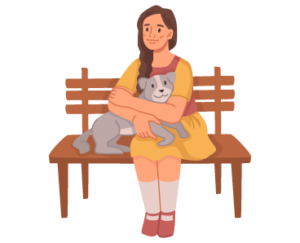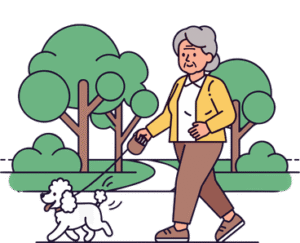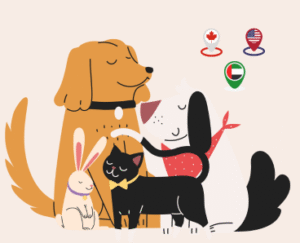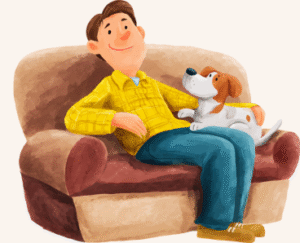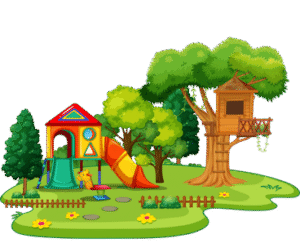With the on-the-go society we live in, people are on a mission to find the next quick solution to their everyday lives, and being a pet owner is the new fad, from owning a dog to being a highly anticipated member of the household. However, in today’s busy world, many dog owners struggle to balance their responsibilities while still ensuring their pooch receives the attention, food, and exercise it needs. This is where a professional dog-sitting service comes in and is extraordinarily handy in promoting the health and well-being of your four-legged friends. Taking care of a puppy requires a great deal of socialization.
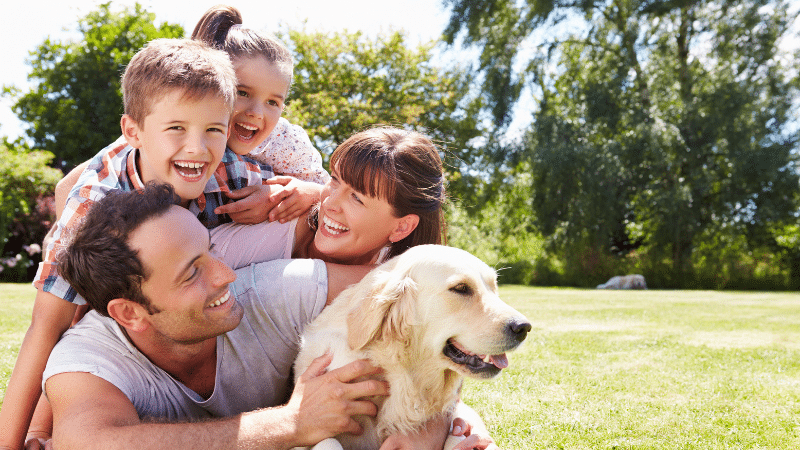
Understanding Puppy Socialization
Puppy socialization is crucial during a dog’s early life, specifically during the first three months. This entails exposing puppies to various new people, environments, and other animals, allowing them to become socialized as adults. This is vital to guard against behavioural problems and to help puppies develop into well-adjusted, social, and confident adult dogs.
The Importance of Puppy Socialization
Puppy Training and Socialisation: It is not only fun to have well-socialized puppies, but it is also an essential component of dog behaviour development and a solid foundation for an emotionally healthy adult dog. Here are the details of how puppy socialization matters:
Preventing Behavioural Issues in Adult Dogs
Foundation for Behavioural Health: Socialisation is the foundation for a dog’s behaviour for the rest of their life, so playing with your dog regularly will help ensure they won’t develop fear, aggression, or anxiety.
Positive Exposure: A puppy needs to have many happy encounters with various stimuli, which will lead to them not fearing their environment.
Developing Sociable, Confident, and Adaptable Adult Dogs
Confidence Building: Puppy socialization helps a puppy feel confident when interacting with other animals, people, and his environment.
Promoting Adaptability: Puppies exposed to various situations are better equipped to adapt to change, making them less likely to develop a fear of unfamiliar occurrences later in life.
Benefits of Effective Puppy Socialization
Minimize Bad Behaviour: A well-adjusted puppy is less likely to develop bad habits, such as too much barking, chewing, or digging.
Quality of Life: Dogs that have been successfully socialized enjoy an enhanced quality of life, as they can engage in a multitude of activities and form healthy relationships with both humans and other animals.
What is the Best Age to Obtain a New Puppy?
The ideal age to pick up a new puppy is usually 8 to 10 weeks old. By this age, the puppy is generally weaned from the dam and eating solid food. It has begun to learn social behaviour from its mother and littermates. This is a crucial time for socializing and forming attachments to others. Training can start, which includes potty training and basic commands.
A puppy acquired before 8 weeks can develop behaviour and health problems. Taking a puppy older than 12 weeks can delay the correct social phase of development.
Consequently, 8-10 weeks is the optimal age for a successful transition to a new home.
0 – 4 Weeks: Neonatal Stage
- Mothers are dependent on warmth, milk, and attention
- Eyes and ears closed at birth; eyes open after 10-14 days
- Tiny movement: lots of just crawling around and sleeping
- Beginnings of sensations (touch and smell first).
- Weeks 3–4: They may stand up, take a few wobbly steps, wag their tails, and start to play with their littermates
4 – 8 Weeks: Transitional to Socialization Period
- Weaning starts around week 4, the transition from mother’s milk to soft food
- Sight and hearing matured completely
- Play with other dogs – learn how to play and behave in a pack.
- He starts to associate with people
- Vaccination typically begins at 6 to 8 weeks
8 – 12 Weeks: Crucial Socialization Time Frame
- The best time to take home a new Puppy (8 weeks or older)
- Highly impressionable: good experiences form lifelong behaviour.
- Toddlers Basics: potty training, the beginning of name recognition, and some basic commands
- First vet checks and injections
- You might have a fear period, be careful with trauma.
12 Weeks And Up: Juvenile Phase
- More independent and inquisitive
- High demand for discipline and training
- Teething starts (12–16 weeks) chewing may become more frequent
- Socializing with dogs, people, and new places is key.
- Begin obedience training and leash exercises, and then progress to more advanced exercises.
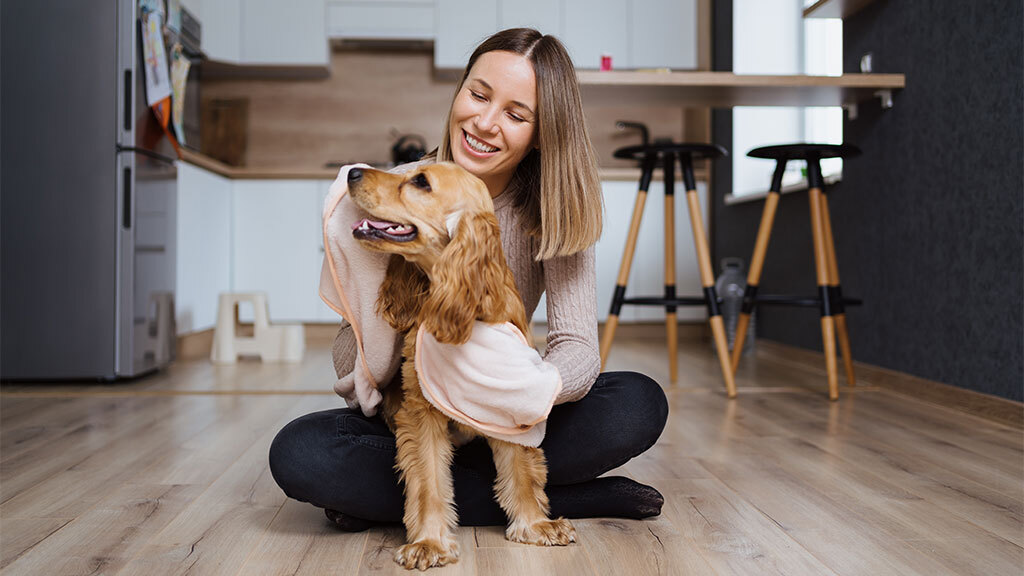
The Role of Professional Care in Puppy Socialization
Puppy socialization is an essential part of a dog’s early life and significantly contributes to a happy and well-balanced and well-balanced life as an adult. Here is where professional dog-sitting services come to aid in ensuring and improving this necessary work. So, let’s take a closer look at how puppy dog sitting plays a central role in socially optimizing your puppy.
Structured Playtime
Puppy training centres are run by professional dog sitters, where you can put your puppy in a structured playtime environment. It’s not exactly a free-for-all; instead, it’s a carefully managed environment where puppies can positively interact with each other. Structured play teaches them important social cues, how to behave and how to interact in a multitude of social dynamics with dogs.
Exposure to different environments
Dog-sitting services need to expose puppies to various environments. In addition to becoming accustomed to their home, allowing puppies to explore other environments rather than just the home environment they are already familiar with can help them become accustomed to new sights, sounds, and smells. This exposure is essential for preventing fear in new situations and serves as a foundation for a well-rounded, confident adult dog.
Interaction with Humans
A dog sitter knows how to interact with puppies positively and gently. This human contact is essential to establish trust and avoid behavioural problems. Puppies that are adequately socialized within their crucial first 3 months are much more unlikely to develop fear or aggression towards people and will be less likely to turn into dogs that grow to be fearful or show aggression towards people, giving your pup a good chance of developing into a well adjusted polite dog.
Customized Care
Professional dog-sitting and dog-sitting providers are not like your average boarding place. All puppies are unique, so these classes offer socialization experiences tailored to their temperament and personality. This individualised attention ensures that each puppy goes home with just the right amount of socialisation and care tailored to its specific needs.
Consistent Routine
Puppies thrive on routine, and professional dog sitters provide it. From predictable feeding times to organized play sessions and scheduled nap times, a solid routine helps a puppy feel secure. Having an idea of what to expect helps limit stress and anxiety and creates a consistent atmosphere for proper socializing.
How to Help Your Puppy With Socializing
Positive early experiences are the key to helping your puppy develop into a confident, well-trained dog. Here is what you can do to help the social part of them grow up:
1. Introduce New People
Allow your puppy to experience different types of people — men, women, children, and even those wearing hats, sunglasses, or uniforms. This makes them feel at ease with diverse looks and behaviours.
2. Explore New Environments
Bring your puppy on short, safe outings to places like playgrounds with your kids, parks, sidewalks, pet stores, and outdoor cafes. Take small steps towards introducing novelties, avoid arousing fear, and stimulate curiosity.
3. Arrange Puppy Playdates
Let your puppy play with and meet healthy, vaccinated dogs. Bite inhibition, proper canine behaviour, and communication are all taught through play.
4. Exposed to Everyday Sounds
Get your puppy accustomed to familiar sounds in and around the house, such as the vacuum, TV, doorbell, traffic, or thunder, by associating them with calm and rewarding experiences.
5. Practice Gentle Handling
Massage their paws, ears, mouth, and tail regularly to help them become more comfortable with grooming and veterinary visits. It’s an atmosphere of trust, and it prevents people from being scared later.
6. Enroll in Puppy Classes
Enroll him in a puppy socialization class to help him learn basic obedience and allow him to socialize safely with other puppies and people.
7. Reward Positive Behavior
Reinforce your puppy’s calm behaviour and interactions with people, other pets, or new environments by praising and rewarding them. Rewarding them will help them build confidence.
8. Keep It Positive and Gradual
Never put your puppy in a position where it feels afraid. Make all exposures relaxed, brief, and positive to prevent trauma or fear.
Why Opt for Professional Pet Care in the UAE
In the urban hustle of Dubai, finding a reliable and professional dog sitter can be a lifesaver, especially for those with busy work schedules. The diverse city also accommodates canine playmates of various types and breeds, resulting in a varied and stimulating social experience.
Why Pet Parents Trust Pawland for Dog Sitting
Trust and care go hand in hand. Give your pet the best experience by choosing Pawland for dog-sitting services. Say goodbye to cramped kennel cages and expensive, traditional dog boarding at Pawland. Your dog is treated like a guest. Our dedication to personalized care ensures that your pet receives one-on-one attention, making their stay with us as comfortable, safe, and stress-free as possible.
What sets us apart is that we love dogs, and your dog is treated like our own! Think of a red heart-shaped pawprint chosen to represent all the love and care your dog will receive when you are not there. When you select Pawland, your dog becomes part of our family, and our home becomes their home. With us, you can rest assured that your cherished pet is being well cared for while you are away.

